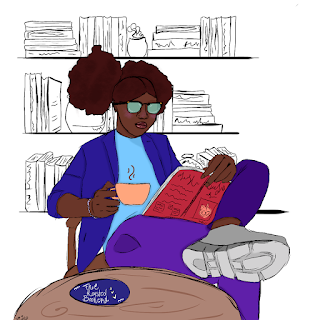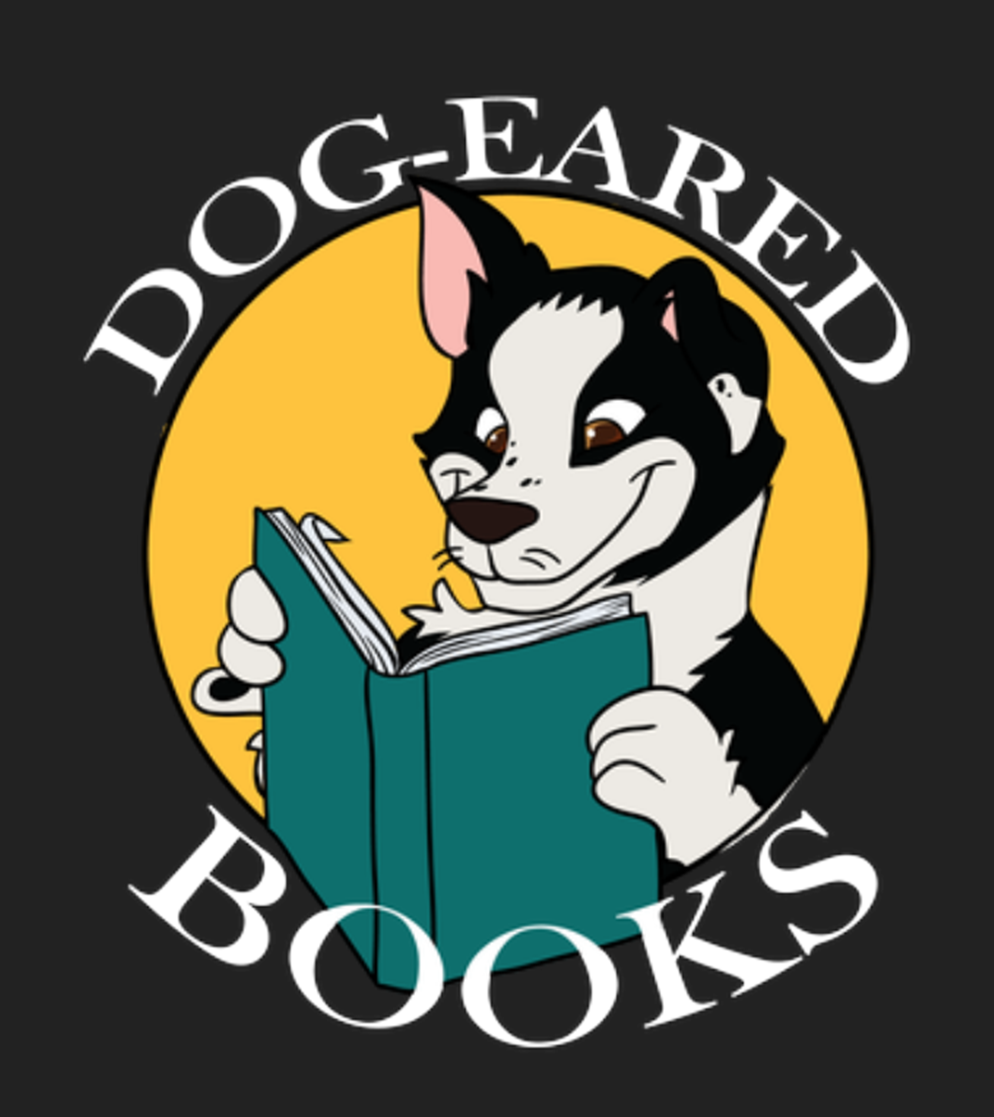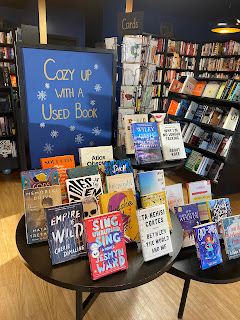Esme Addison is a fantastic North Carolina author.
She has published two books so far in the Enchanted Bay series, a mystery
series that follows Alex Daniels after she moves back home to help her family
run their apothecary only to discover that her family has ties to a long-ago
mermaid.
Her new book, An Intrigue of Witches, comes out May 7th,
and I’ll let her explain more about it below. Her blend of genres is truly
delightful and sure to draw in readers. Below she discusses a bit of her
writing process and inspiration. Check out our interview with Esme Addison and
find all her books listed on the NC Literary Map.
How long have you been
writing and what first inspired you to start writing?
I’ve been writing since I was a little girl. The first ‘book’ I
wrote was in the 6th grade, and it was an assignment for my Language
Arts class. We had to write the story, illustrate it and create the cover out
of cardboard. My love affair with books began then. And when I discovered that
S.E. Hinton published The Outsiders as a high school student, I was inspired to
become an author. I thought – if she can do it as a kid, so can I.
Your new book is set in
a fictional town in North Carolina. Can you explain a bit of your process when
creating these places? Why North Carolina and do you use real cities and towns
to base them off of?
I’m from North Carolina. I love my home state though I have
traveled the world and lived in other states for a time. And I enjoy setting my
stories in places that feel comfortable for me, like home. Like those decals
you see on the backs of cars with the outline of the state of North Carolina
with a heart and the words home in the middle? That’s how I feel.
So, there’s always a perfect somewhere in this state for one of my
stories. My newest book, An Intrigue Of Witches is located near New Bern.
Because my other series is on the coast, I wanted a different setting. It
didn’t need to be special so I thought just somewhere in the middle of the
state. Much of the story takes place at a living colonial-era museum so I
wanted it to be near a real place with American Revolutionary history.
And when I decided to create a scene at Tryon Palace, creating a
fictional town near New Bern just seemed natural. Late in the story, I decided
I wanted a river to run through the town, and again being near the Neuse just
make sense.
As far as how I create the town, it just develops as I write. I
can usually see it in my minds eyes. But it always begins with a main street
and a historic district. Like always.
My other series, the Enchanted Bay Mysteries is about a family of
women descended from the Polish Mermaid Of Warsaw. They own an enchanted herbal
apothecary and live in a community of people with and without magical
abilities.
They had to be near the ocean, as they draw their magic from the
element of water, especially the sea. And since I spent time as a military
spouse near Camp Lejeune, I wanted to use a general beach community between
Jacksonville and Wilmington, areas I was familiar with.
Your books also all have
a magical element. Why have you chosen fantasy for your novels and what do you
find the most difficult about building these magical systems?
I’m not sure why I’ve gravitated toward fantasy and science
fiction. I’ve written other books that will probably never see the light of day
in high school and college. Two were contemporary YA, one was a romcom and the
other historical fiction.
But, I always write the book I want to read. And I also want to
write something that is unique to me – only a book I can write. My books
combine genres and include unorthodox elements by design. I don’t want to write
just ‘any ol’ thing’. I want it to really represent my interests as a writer….
Which are eccentric and obscure.
My parents made sure there were plenty books in our home, and I
was exposed to classic fiction, and non-fiction that explored new age subjects,
conspiracies, hidden histories…all the things I write about.
I really don’t find anything difficult about magical world
building. It’s fun and exciting for me to create worlds as I write. I think the
actual concern would be if I wasn’t writing in magical elements, would I be
interested in the story?
Please give us a quick
elevator speech of your new book, An Intrigue of Witches.
When a historian is invited to a small town to find an elusive
artifact, she discovers secrets about her heritage and unveils a government
conspiracy that stems from North Carolina’s the colonial-era.
You must to do a lot of
research on herbal remedies, myths, and history to write your books. What is
your research process like for writing a story?
This is true, I do a crazy amount of research. But I do this
irrespective of writing. I’m always learning about new things. Sometimes I
create ideas for books because I found something while researching and want to
explore it more. You could say writing a book gives me a good excuse to
research many things.
Mostly I research as I go, falling down several useful research
rabbit holes. I take notes and then return to writing. Beyond that, I am always
researching something that I know will be useful one day. I screenshot,
bookmark and save as PDFs many topics for future reference.
I am an amateur herbalist, so I know a lot about herbal remedies
but I still research and confirm information as I write.
The Enchanted
Bay series pulls inspiration from Polish legend, specifically the
Mermaid of Warsaw. How did you first hear about this? What about this story
attracted you to it enough to write a series centered around it?
I’d discovered cozy fantasy and cozy mysteries a couple years
prior, and decided I wanted to create my own. I’d married into a first
generation Polish family and wanted a story where I could add all the delicious
food and baked goods my mother-in-law prepared for me. That was truly my
initial motivation.
One of my favorite fantasy mysteries is about a group of witches
in Savannah, Georgia so I thought I’d create a series around a Polish bakery
and a family of ‘kitchen witches’. However, editors weren’t interested in the
idea so I began researching Polish history and mythology trying to find
something interesting and different enough to pique my interest.
I’d never heard of the Polish Mermaid Of Warsaw, but I found a
wiki page and was immediately fascinated by the story. A quick internet search
showed me that not much had been written about the myth, despite the fact that
if you travel to Warsaw (as I have) you’ll find mermaid statues and likenesses
all over the place.
There was no way I could not not
write about this myth. And I was challenged to find a way to write a
grounded, practical story about women in a small town that were descended from
a mythological creature that was actually flesh and blood. In my story, the
characters are genetically mermaid so presenting as everyday humans, but they
have some paranormal or magical abilities that come along with that dna. My
goal with the Enchanted Bay Mystery series is to answer the question: If the
Mermaid Of Warsaw myth was actually true, what would that look like today in
our real, contemporary world.
What can you tell us
about the third book in the series?
Not too much at this point, I’ll just say that it’s set in the
fall, the women are planning an Oktoberfest and the 40th anniversary
of a serial killer that stalked the town one summer and was never caught causes
problems for the good folk of Bellamy Bay, NC.
As the NC Literary Map,
we love supporting and showcasing the authors and literary works of North
Carolina. Can you tell us what North Carolina authors or books you would
recommend?
One of my favorite NC authors is Sarah Addison Allen. She’s one of
the first authors I read that combined small town Southern settings, family
dynamics and magical realism – all things I love. And I try to include those
elements in my writing as well.








